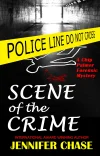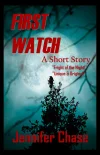“Crime is complex; evidence is complex; and people are complex.”
“…the less one knows about something, the simpler and more certain things seem. While illusions are convenient, allowing us to pretend that we have achieved some level of understanding so that we can go back about our day without having to change the way we think or behave, it puts us nowhere nearer to any kind of informed understanding of crime and criminals.”
***
This is one blog post you won’t want to miss.
I’ve been fortunate to have met many individuals that work within the criminal justice system and in the private sector from detectives, forensic scientists to criminal profilers. I’ve received many questions about the recent mass shootings and I have seen many articles and topics about it. I wanted to dig a little deeper into this topic.
My guest blog post today is from renowned forensic scientist and criminal profiler Brent Turvey. He graciously accommodated my request to talk about the recent mass shootings and what it really means in the world of crime today.
***
Mass Shootings and the Complexity of Crime
As the whole world knows by now, a midnight showing of the “Dark Knight Rises” on July 20 in Aurora, Colorado was interrupted by a gunman who opened fire and left 12 people dead and 58 wounded. Immediately, there were extreme reactions and opinions about who the gunman was, why he did it, and how this tragedy could have been prevented – all without the benefit of facts or even an investigation. Mostly, this came from predisposed advocates or uninformed pundits who, for lack of actual casework, could easily make themselves available for comment and fill airtime.
Now that we have distance from the tragedy, and some actual information, it is clear that there are some lessons to be learned.
First, the 24-hour news cycle has created the illusion that every detail about every crime, and those persons involved, can be immediately learned and understood with either a Google search or a stop at Wikipedia. This is not the case. Crime is complex; evidence is complex; and people are complex. Viewing any of these through tools that rely on simplistic constructs or stereotypes results in a blurred lens that mimics clarity. In other words, the less one knows about something, the simpler and more certain things seem. While illusions are convenient, allowing us to pretend that we have achieved some level of understanding so that we can go back about our day without having to change the way we think or behave, it puts us nowhere nearer to any kind of informed understanding of crime and criminals.
Second, it needs to point out that the mass shooting phenomenon is not unique to the United States, as many seem to believe. This is something that happens everywhere. It happens across the United States and it happens around the world. However, international news is poorly reported within the United States, unless we are trying to demonize our Mexican cousins or report on the atrocities committed in the Middle East. What’s worse, shootings that occur within the United States, in high crime areas, often between or against minorities, receive little or no media attention at all. Consequently, U.S. citizens are terribly uninformed about the nature and extent of shooting violence occurs that occurs anywhere, let alone within their own borders. In fact, it’s worth noting that the best scientific research on the subject of mass shootings has come out of Scandinavia.
Third, it is not clear that this tragedy could have been prevented, but we won’t know the facts until the investigation is complete. We know that the shooter, despite being highly intelligent, has a history of mental instability; that his therapist was very concerned about his mental state to the point where she considered him a threat; and that he quit school before deciding to go on his rampage. What we do not know for certain is the nature of his therapist’s concern, how it was handled, whether it was missed by those who shouldn’t have missed it, and whether there was a specific precipitating event. Until we have more information, all we have is under-informed speculation.
Fourth, it can be argued that gun control laws facilitated this tragedy. Criminals and other motivated individuals that do not care about the law are always going to be able to get their hands on guns. There are simply too many out there to pull back. What gun laws actually do is ensure that law-abiding citizens are unarmed and defenseless, while creating childish forbidden fruit logic around the possession and use of firearms. For example, in Colorado there were army veterans among the movie theater victims. These were individuals trained in combat and self-defense. Had they been armed, or anyone else among the victims, it is reasonable to think that they could have responded at the outset of the incursion and possibly reduced the number of victims significantly. Had the shooter believed that he was likely to encounter armed victims, he may have chosen another target.
And finally, a word on profiling. There is no reliable profile of any kind of mass killers, shooters or otherwise. The offenders that have emerged in the last 20 years don’t easily fit the molds suggested by criminology researchers, as my own research found in a study published a few years ago. What profiling can offer in this kind of case is a mechanism for studying and understanding the individual crime more completely – not predictions about who is going start shooting and when.
To summarize, the lessons to be learned from this tragedy include being patient and waiting for information before forming conclusions; accepting that this kind of tragedy is a feature of the world we live in that it has yet to be studied and understood with any degree of accuracy; and that until we gather the facts and do the research, no amount of gun control laws can protect us from motivated criminals who will not only ignore them, but count on them.
By Brent Turvey
Forensic Scientist & Criminal Profiler
Senior Partner, Forensic Solutions LLC




































Great post.
LikeLike
Thank you Marian. Appreciate you stopping by 🙂
LikeLike
You won’t find comments like these in the media where the anti-gun philosophy holds sway. Too reasonable. It closely mirrors my own thoughts. I intentionally delayed my posting regarding the tragedy in Aurora for the same reasons and came to many of the same conclusions (although, to be honest, I inserted a few speculations about a possible conspiracy to rile up the debate). All in all, it’s good to see other rational commentary on the tragedy.
LikeLike
Thanks Jack. I appreciate you comments. I knew the perfect person to put this issue in perspective.
LikeLike
Fascinating and so informative and though provoking. Thanks once again for a great piece.
LikeLike
Thank you Jane for stopping by 🙂
LikeLike
You are most welcome. I enjoy reading your articles and blog. I shall pop by again no doubt. Thanks for saying hello on mine. xx
LikeLike